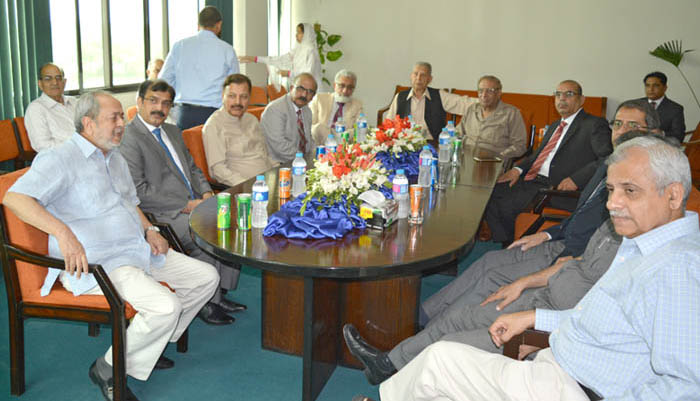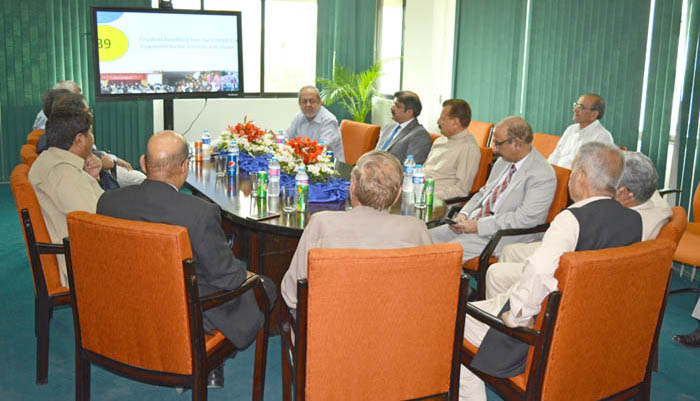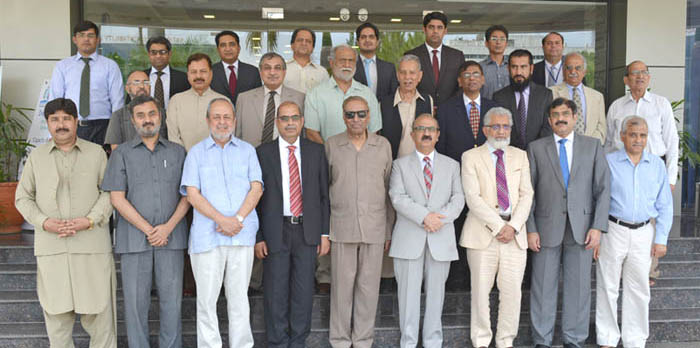On July 18, 2017, the Executive Director COMSATS, Dr. S. M. Junaid Zaidi, hosted a lunch for the leadership of the Pakistani Universities at the premises of COMSATS Secretariat.
The lunch was attended by the following VCs/Rectors: Prof. Dr. Shahid Siddiqui, Allama Iqbal Open University; Maj Gen (Retd.) Khadim Hussain, Foundation University Islamabad; Mr. Imran Rahman, Institute of Space Technology; Dr. Amir Muhammed, National University of Computer and Emerging Sciences; Dr. M. Latif Virk, National University of Computer and Emerging Sciences (Registrar); Dr. Javed Ashraf, Quaid-i-Azam University; Prof. Dr. Javed Akram, Shaheed Zulfiqar Ali Bhutto Medical University (SZABMU), PIMS; Prof. Dr. Rai Niaz Ahmad, PMAS-Arid Agriculture University; and Prof. Dr. Zia ul Qayyum, University of Gujrat.
 |
 |
Also present were Dr. Arshad Ali, Executive Director Higher Education Commission of Pakistan; Capt. U.A.G. Isani, Former Principal Secretary to the Prime Minister of Pakistan; Engr. Dr. Nasir Mahmood Khan, Additional Registrar (HoD), Pakistan Engineering Council; Dr. Izhar Hussain, Registrar, CIIT; and Dr. Arshad S. Malik, Head International Office, CIIT, Islamabad. In addition, senior officials of COMSATS Secretariat also attended the lunch.
The Executive Director gave a presentation to the august gathering about COMSATS, whereby he introduced them to the organization’s history, objectives, current activities, achievements, and future aspirations. Based on the presentation, different ideas/areas also came under discussion for future collaboration among relevant institutions. The participants showed keen interest particularly in the idea of setting up campuses of Pakistani universities in COMSATS’ Member States. A special focus of this discussion remained on Sri Lanka, in response to which the Executive Director pledged that COMSATS will make efforts to help these universities in setting up campuses in COMSATS’ member countries.
At the end of the lunch, the Executive Director thanked all participants for gathering and hoped that the meeting would lead to stronger cooperation between COMSATS and academia in the future.







